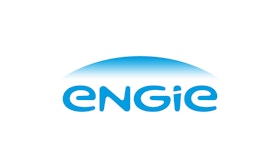ENGIE, one of the world’s energy leaders, signed a joint venture partnership agreement with Electric Vine Industries (EVI), a private microgrid developer that is committed to bringing sustainable energy access and income generation opportunities to unelectrified households across Southeast Asia.
The joint venture aims to develop, finance, build, operate and maintain photovoltaic smart microgrids to serve approximately 2.5 million people across the Province of Papua, providing sustainable 24/7 Alternating Current electricity to 3,000 villages over a period of 20 years. Consumers will be able to pay by mobile phone. The total investment is estimated at USD 240 million over the next five years.
Didier Holleaux, Executive Vice President of ENGIE Group, said: “This project is fully aligned with the strategy and vision of the ENGIE Group. We aim to be a forerunner in the new energy world through co-innovation and partnerships, designing and developing new energy models which are decarbonised, digitised, decentralised and to improve the lives of people and support growth opportunities for businesses and communities”.
“This partnership is a huge step forward for Electric Vine Industries and for our efforts in remote electrification in Indonesia. We are now backed by ENGIE, the largest independent electricity producer in the world and are excited about their support in bringing this project to fruition,” Bryse Gaboury, Co-Founder and CEO of Electric Vine Industries.
Electric Vine Industries have been operating a pilot microgrid since March 2015 and has succeeded to provide a population of 250 people with 24/7 electricity in the past two years, which is a significant increase from only three hours per night. The electrification not only supports the basic electricity needs of the villages, but also enables income generation opportunities.
Pak Fredrik Felle’s testimonial illustrates: “We used to live in darkness but with this solar microgrid, we enjoy all the energy we want. With the electricity from EVI, we can use a refrigerator for business. We sell ice cubes and ice cream.”
The project contributes to the Indonesian government’s target to enable 100 per cent electrification across the country by 2020 and has received support from the local government, as the project implementation is guided by the Energy and Mineral Resources Ministerial Regulation No. 038/2016 “Acceleration of Electrification in Areas of undeveloped, rural, border and small inhabited islands through small scale electric generation”. Today, Papua has the lowest electrification ratio when compared to other provinces in Indonesia.
This Joint Venture showcases ENGIE’s commitment to contributing to Indonesia’s economic development through sustainable energy access and rural electrification. ENGIE has also started construction in Indonesia of its first high temperature geothermal power generation plant in the world, Muara Laboh, which is the Group’s first renewable project in the country.
Publish your content with EB Publishing
It's about who you reach. Get your news, events, jobs and thought leadership seen by those who matter to you.











